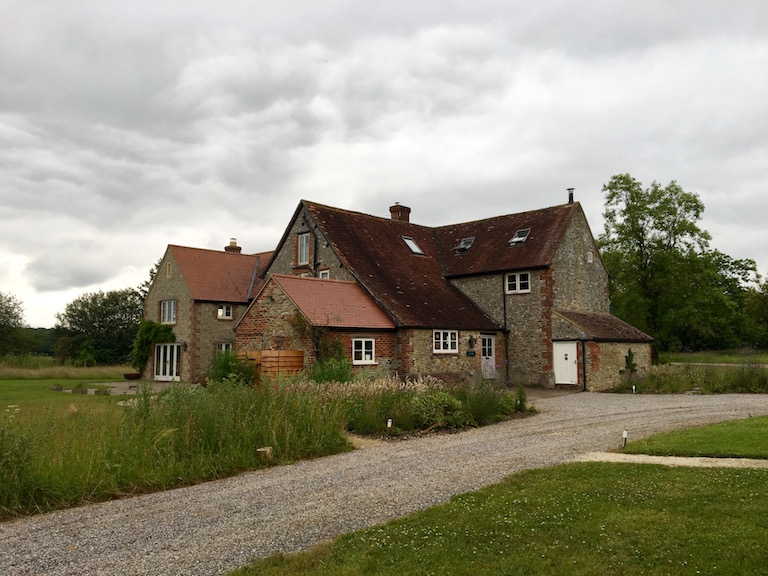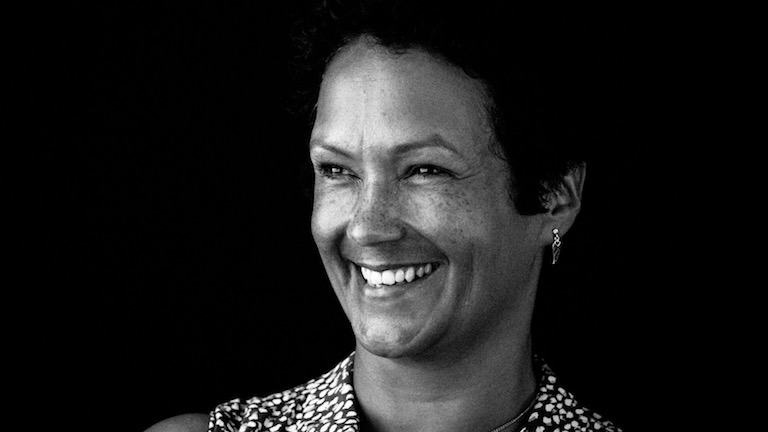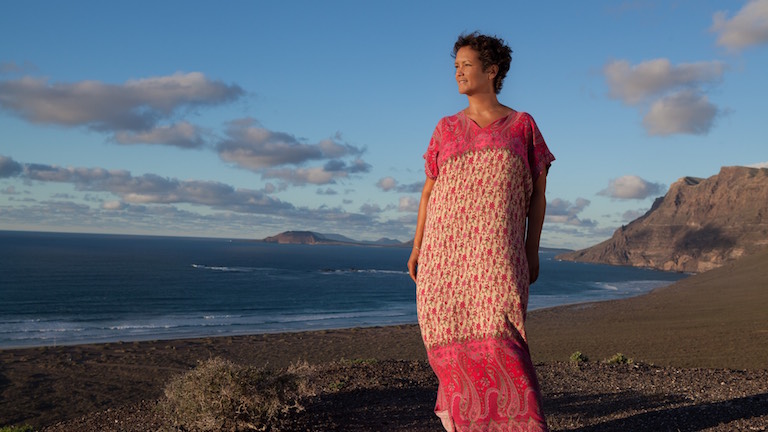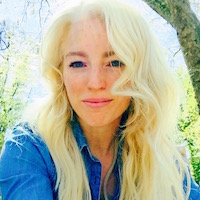Everyone grieves a loved one’s death differently. Emma Whitehair shares her journey to a grief counselling retreat that helped her overcome the death of her alcoholic mother 20 years ago
My mother died more than 20 years ago. Cause of death: alcoholic cirrhosis. I had lost her way before this though. In fact, when I heard she had died, I felt relief. She had been a chronic alcoholic for as long as I can remember. All those years of blocking her out of my heart were finally over. So I stood stony faced at her funeral. Numb.
For the next decade (my 20s) I continued to numb out with the help of, ironically, alcohol. Luckily, unlike my mother, I got sober 11 years ago this month, while still in my early 30s. However, I still continued numbing out in other ways. And, although my compulsions were indicating I still had an insatiable hunger for comfort, I wasn’t actively looking for healing when synchronicity led me to Donna Lancaster, who booked me onto her next Bridge retreat.
Grief can break our heart and also crack it wide open
While packing for this trip; rummaging for paper to wrap the mysterious gift we were asked to bring, I came across my mother’s death certificate. For the first time, I allowed myself to take in the details of the address where she was found dead: a shelter for the homeless. My lip trembled and tears streamed down my face. I knew I was finally ready to look at the shame and pain that had been buried in my body for decades. I messaged Donna to share that I felt the process was already starting. She typed back: “Grief can break our heart and also crack it wide open. Some are too afraid of this opening but not you, dear Emma. What a gift. And with that, I knew I was in safe hands.
The five day retreat that helped
The Bridge is a five-day self-development retreat with the aim of releasing emotions, in order to remove the unconscious blocks that prevent us from living authentically. Co-founders, Gabi Krueger and Donna Lancaster both met when they were Hoffmann facilitators – a process that aims to heal childhood wounds.

Arriving at the elegant and comfortable ‘42 Acres Centre’ in Somerset, our group was made up of 12 women and two men, aged from mid 20s to late 50s. Creature comforts are given priority on The Bridge – with the cosy converted country farm setting and delicious organic meals prepared from scratch with locally sourced ingredients. However, I did find the no-distractions aspect far less comfortable. Not only did we have to hand over our devices (leaving me with phantom phone syndrome) we were also asked to refrain from meditating, reading, yoga or any form of strenuous exercise beyond a gentle walk in the grounds. And, as the type of person who’s constantly in ‘action’ mode – busy, doing, I don’t often truly connect with my feelings – this digital-detox had my emotions running riot.
My heart melting
With no distractions, I was forced to really connect with my feelings. On the very first morning of the retreat, I found myself bursting into tears when Donna helped me identify a word that I had left out of my pre-retreat paperwork. We had been asked to describe a quality we had as a child. Nothing had come to mind, but when Donna suggested ‘innocence’ my heart melted as I wept, realising this was a quality that had miraculously stayed intact despite a childhood with its…let’s say – age inappropriate experiences. She went on to tell me that she could see I had ‘angel qualities’ – which left me unable to speak without bawling for the rest of the morning. And this was when The Bridge magic first started. One of our first exercises was to pick up the first ‘item from nature’ that caught our eye to bring as an offering to our welcome ceremony. Mine was a white feather and a young green leaf. Innocence encapsulated.
Each day of the retreat involves a mix of sessions including everything from cognitive explanations to written inquiry and dancing, with plenty of time for rest. Group sharing is a focal point at The Bridge, and I learnt there’s a huge difference between telling your story and being heard doing so. Being heard, being witnessed, is where the real healing happens. And while much of our work was done in one large group, we were also split into two smaller groups for some of the more intimate sharing. With Donna holding space for my “tribe” of seven.

Donna bears more than a passing resemblance to Thandie Newton, one of her clients when she was a Hoffman facilitator, and her African heritage influences the rituals that are such an important part of the work on The Bridge. Sassy and hilariously funny, her former role as a child protection social worker shows in her realness. Also known as ‘The Grief Queen’ – this refers to heartbreak beyond bereavement, the kind of heartbreak that queues up, waiting for those ‘straw that broke the camel’s back’ moments. Dispelling the old adage ‘time will heal all wounds’.
For our first intimate sharing circle, we were invited to write a letter to someone associated with one of our life’s losses, saving our ‘big one’ for the next day. I wasn’t sure who to write to until the gift of a trigger helped me discover a wound so deep I wasn’t even aware it existed – my bullies at primary school. And with that discovery, the floodgates opened. The ‘letter’ which I read to someone in my group, turned into an ad-lib rant. I described how, between the war-zone at home and a ‘survival of the toughest’ environment at school, I was singled out for being vulnerable. I had no safe place.
I was wracked by sobbing, shaking as emotion that had been deeply buried in my body for over 30 years came surging through me. The rest of the group sat in a circle, around our two armchairs. Silence from my benevolent witnesses emboldening the healing. Just then, as I was yelling “you’re all fucking sheep”, unbeknownst to me, as my back was to the window, a herd of young sheep strolled right up to the glass. Pressing their wet noses against it. Kudos to my tribe for holding space for me through that without laughing. And when they filled me in about what happened, we all decided they were joining in the session – representing the kids from primary school, to apologise.
The exercise allowed me to reflect back on the moment I stepped into my anger, age 11. In order to stop the mistreatment, with a forceful jolt of energy, I discovered my voice was a survival tool. I became a ‘warrior woman’ on a mission to defend not just myself but also others without a voice who are being oppressed. Sounds great, right? But the other edge of this sword is that I still use anger to make myself heard, often to the detriment of hearing others’ needs. At The Bridge I realised it was safe to allow the mask to drop. As an adult, I have created a safe environment for myself. So when asserting my boundaries, I can now dial back the DEFCON 1, and instead respond in a more appropriate, even compassionate, way.
I still use anger to make myself heard, often to the detriment of hearing others’ needs
The following day our grief recovery work closed with another letter exercise. In a slightly different format and this time, around our biggest loss. For me, this involved reading a letter to my mother, energetically represented by Donna – who took undivided empathic attention to a whole new level. This deeply emotional experience allowed me to say some of what had been stuck in my throat since childhood and receive some of the loving words I so needed to hear. It also helped me realise that my mother’s weakness had given me incredible strength, and with that, my loss was transmuted into a gain. Later, live African drumming created a hypnotic tribal beat, for chanting and dancing – the backdrops for our group to each say our goodbyes, over candlelit shrines. Giving me the opportunity to release grief that had been stuffed to the pit of my stomach since my mother’s actual funeral, all those years ago.
The 5As
The Bridge is not all synchronised sobbing though. Over the three phases in the five day programme, we were taken on a journey from cognitive work to catharsis to celebration, with plenty of upbeat dancing. With carefully selected music playing a big part of the programme, I enthusiastically shook off frozen history stirred up by the work to the beats of Mory Kante’s ‘Yeke Yeke’.
Another important influence on the work at The Bridge is David Richo – who created a model for understanding the human condition based on what he calls the Five As. When growing up, these Five As of Attention, Acceptance, Appreciation, Affection and Allowing are fundamental to the development of the bones of our psyche. Through personal enquiry work on The Bridge, I come to understand I had experienced a lack of attention and affection, which was showing up as neediness within my relationships. It dawned on me that I had been trying to balance an ancient deficit, by seeking someone who can offer enough of those delicious As to satisfy me. Which is as likely as finding a unicorn. It was time to grow up and learn to enjoy living with a little hunger in my heart.
Donna emphasised: ‘No one is coming to save you!’ and instead we were given self-love practices to help us nurture ourselves
Another revelation I had is that because my experience of love in my formative years was unpredictable and, to a certain extent, unavailable, I am easily seduced by this energy as an adult. Almost a subconscious attempt to re-write my childhood script and skip off into the sunset, happy ever after. Donna emphasised to our group: ‘No one is coming to save you!’ and instead we were given basic self-love practices to help us nurture ourselves with the Five As.
Re-integration into everyday life

On the last day of the retreat, Donna invited me to look in the mirror to see the change in my appearance. There I was – looking softer without my mask; authenticity in its place – my scars had become stars. Still a bit badass, while also – innocent. With a new found awareness of the needs behind my patterns of behaviour, my inner wounded child can be embraced by Emma as a wise adult.
Returning to my ‘normal’ life I felt emotionally lighter, although admittedly tipping the scales a little heavier – thanks to the generous servings of delicious home cooked food. Re-integration was a little bumpy though. It took me a little while to process just how much my past had kept me locked in ‘stories’ – creating blocks when it came to intimate relationships. I also had to figure out how to get the ‘Affection’ and ‘Attention’ I needed without relying on a romantic partner. Then it came to me – I could give my thoughts and feelings due ‘Attention’, replacing the voice of my inner critic with that of an affectionate lover. Avoiding acts of self abandonment, such as getting caught up in romantic fantasies, and learning to listen more to the language of my body – gut feelings along with subtle symptoms – that indicated what I really needed.
Now, a few months after crossing The Bridge, I feel I’ve transcended my past, using wings, that Donna reminded me had always been mine. I had come home as a more authentic and loving person, with a strong conviction that this kind of inner work has the power to heal the world.
5 things I learned about grief
- You have to feel it to heal it.
- Numbing-out and/or distractions only prolong the sadness.
- All significant losses or heartbreaks, need to be grieved – in one way or another. Otherwise the emotion stays in your body.
- Your body will find a way to release unexpressed grief. Like a game of Whac-A-Mole – with feelings popping up with disproportionate intensity over minor losses.
- Tears are a sign that your heart is melting.
Learn more information on services offered by The Bridge here. Prices start at £2400
Emma Whitehair is a wellbeing writer and travel reviewer as well.
READ MORE
Can’t shake the sadness? 10 expert ways to manage grief
Depression, abuse, PTSD? 15 signs you need therapy
How FOOD can help depression – the nutritionist’s guide
7 celebrities opening up about their anxiety
Like this article? Sign up to our newsletter to get more articles like this delivered straight to your inbox.






















































